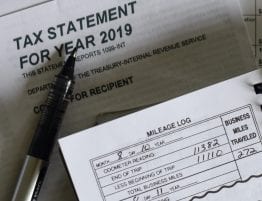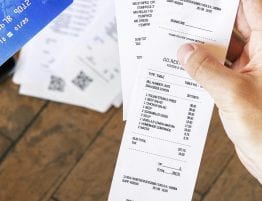
Payment platforms such as Venmo, PayPal, CashApp etc. are legally required to report certain financial transactions to the IRS and taxpayers. If financial transactions using a third party payment network exceeds a certain limit, the payer and the receiver of the pay may receive Form 1099-K.
What is Form 1099-K?
Form 1099-K, Payment Card and Third-Party Network Transactions is the information return used to report reportable payment transactions made using third party networks. The IRS defines a reportable payment as a payment card transaction or a third-party network transaction. A payment card transaction includes credit card, debit card, a gift card, etc. A third-party network transaction is any business transaction made through third-party networks such as Venmo.
Each payment platform sends a separate Form 1099-K if you received payment(s) from them. Each Form 1099-K includes the gross amount of all reportable payment transactions conducted through a payment platform.
When Do Taxpayers Receive Form 1099-K?
A taxpayer receives Form 1099-K in these situations:
- If s/he received payments from payment card transactions such as credit card, debit card or stored-value cards such as those having prepaid value, including gift cards,
AND/OR
- Gross payments that exceed $600 in any number of transactions – for returns for calendar years after 2021.
For example, if you receive a payment from a company you worked for through PayPal, it becomes the responsibility of PayPal, the third party network, to send Form 1099-K to you and the IRS, if it meets the above conditions. Sellers selling their products on Amazon may also receive Form 1099-K.
Reporting of financial transactions by third-party payment network to the IRS promotes tax compliance and also makes it easier for the agency to detect inaccuracies on a return such as understatement of income.
Changes in Reporting
The reporting requirement for Form 1099-K has been revised from Jan 1, 2022. Now, the reporting requirements for these transactions has changed from totals exceeding $20,000 to totals exceeding $600, regardless of the total number of transactions. Simply put, irrespective of the number of transactions, if the total payment exceeds $600, it needs to be reported.
Another change is that Form 1099-K can now be revised anytime, and is not restricted to an annual updating. Therefore, taxpayers are encouraged to use the most recent version of the form available on the IRS website.
How Does it Impact Taxpayers?
This tax law applies to third-party reporting requirements and does not alter the tax requirements of individual taxpayers. Though it must be noted that since third-party network transactions are directly reported to the IRS by third-party platforms, taxpayers need to be careful to report payments received through these channels correctly and accurately on their return.
Also, taxpayers need to keep in mind that the gross amount on Form 1099-K is not adjusted for any deductions, credits, discounts etc. that they may be eligible for. Therefore, it may not be the total amount on which you pay taxes.
Record-Keeping
Due to changes in reporting requirements, taxpayers need to keep a complete record of their financial transactions if their gross payments exceed $600. Especially those who are in the gig economy and receive payments from different companies and individuals may keep a record of all the payments received even if they didn’t receive a Form 1099-K from an employer. The IRS does not consider not receiving Form 1099-K as an excuse for non-reporting of income. Therefore, taxpayers need not depend solely upon Form 1099-K, and report all taxable income on their return whether it was received through third-party payment networks or other channels.








